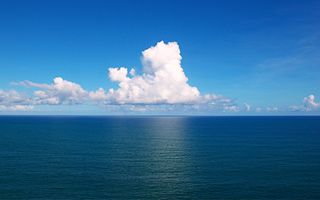(Finance) – Making data on marine health more available, accessible, interoperable and reusable, in a word FAIR. That’s the goal of the project EMODnet Data Ingestionwhich aims to make more usable and increase the number of data collected by European Marine Observatory and Data Network (EMODnet), the largest European sea and ocean observation network. The projectnow in its fourth edition, is financed by the European Commission and sees the participation of 42 partners, including ENEA which, on the occasion of World Oceans Day, celebrated annually on 8 June, takes action to promote the need to improve availability of marine data to facilitate climate studies, the conservation of fragile habitats and to make human activities at sea more sustainable, from aquaculture to the production of offshore renewable energy.
AENEASthrough the laboratories of the research center of Holy Teresais involved in the project as a data center expert in the processing of data relating to physical oceanography and is involved in aspects of scientific dissemination.
Between data entered in the EMODnet portal, also those of temperature, pressure, conductivity and salinity of water detected by ENEA, together with CNR, DLTM (Ligurian District of Marine Technologies), INGV and Istituto Idrografico della Marina, at the monitoring station installed in 2019 in Eastern Ligurian Sea near the Bay of Santa Teresa (La Spezia). The latest edition of the project includes a further portal development through which, since 2016, new data has been collected to feed the EMODnet network. These entries are entered initially without any particular processing but become open in EMODnet only after subsequent processing carried out with the support of expert data centers.
“To be reliable, accurate, but above all accessible, data needs to be ‘prepared’ according to international standards, with the necessary auxiliary information to better describe and understand the data itself,” he explains Leda Pecci ENEA researcher at the Biodiversity and Ecosystem Services Laboratory. Thanks to EMODnet Data Ingestion it was possible to collect even more 1,400 datasets from 200 different suppliers. “Data acquisition work and increased sharing of marine data benefits not only the scientific community, but also maritime planning and marine development. blue economy: for example, we have opened a discussion table with stakeholders in the offshore renewable energy production sector, to harmonize the acquisition and management of marine data necessary to obtain concessions and licenses, authorizations subject to long and expensive survey operations seabed geophysics and environmental impact studies, to guarantee the sustainability of the activities” concludes the researcher.
(Photo: Tiago Fioreze CC BY-SA 3.0)
